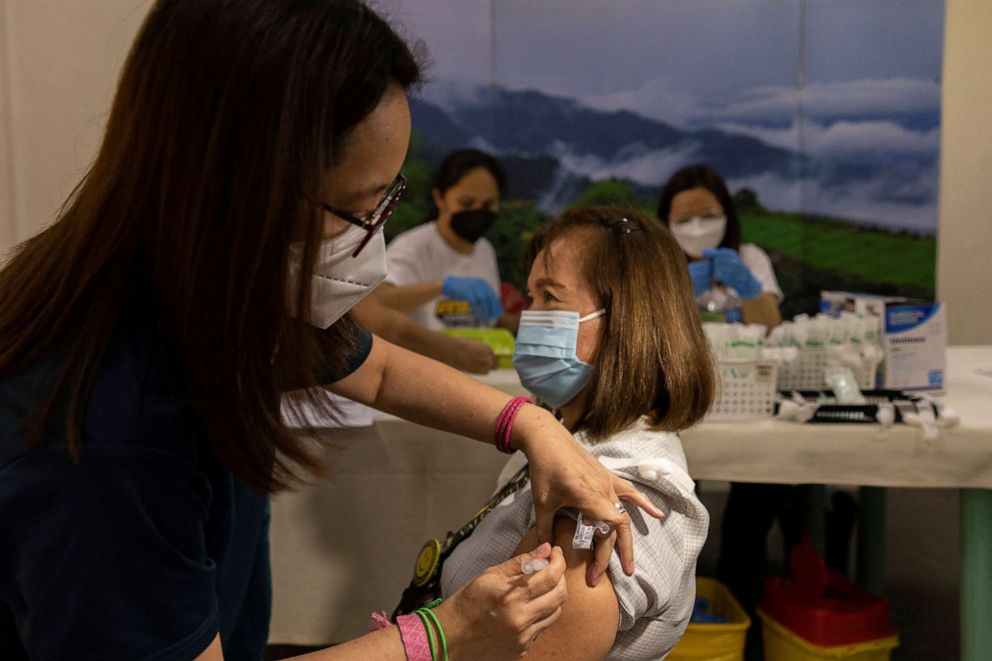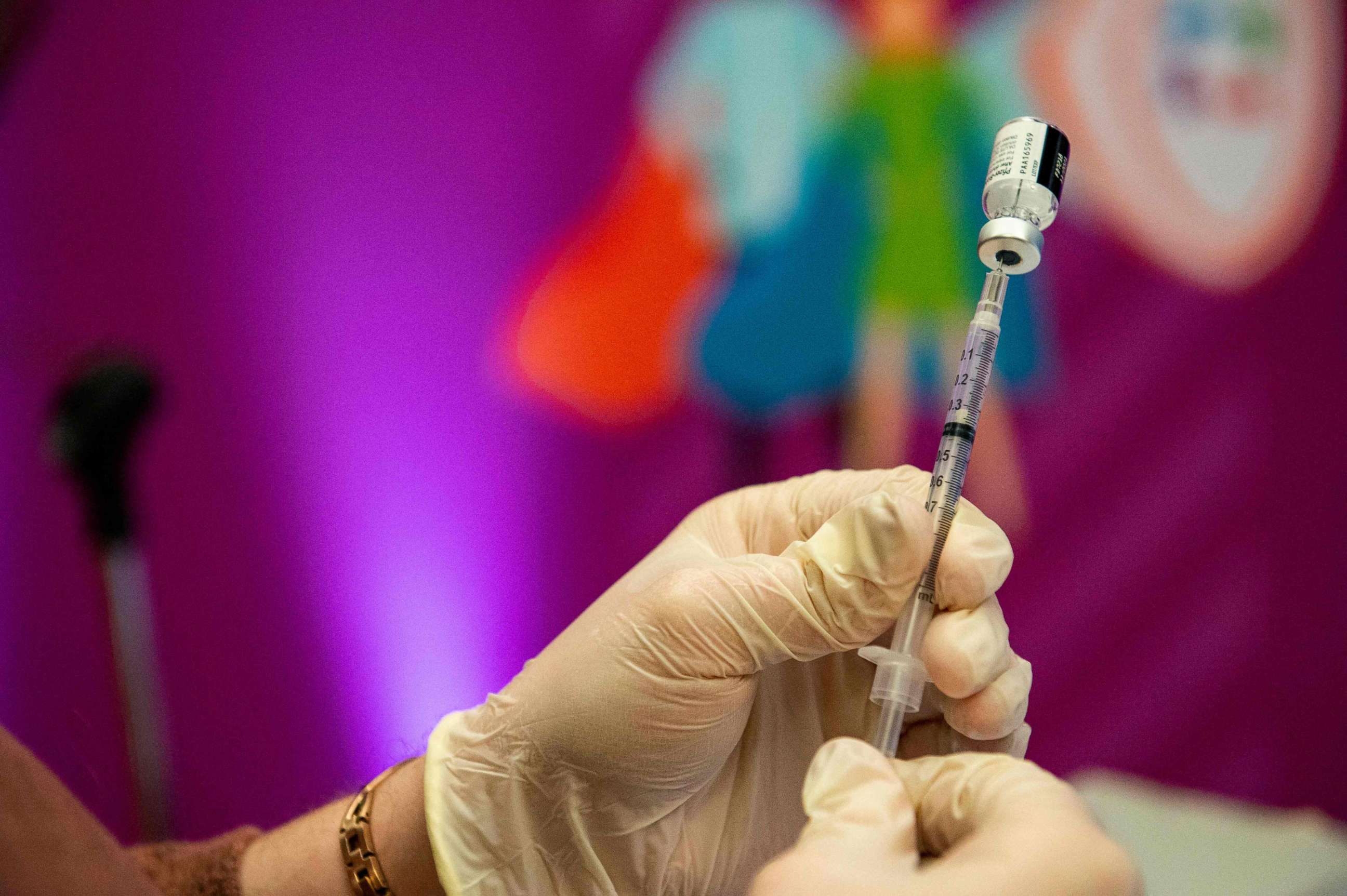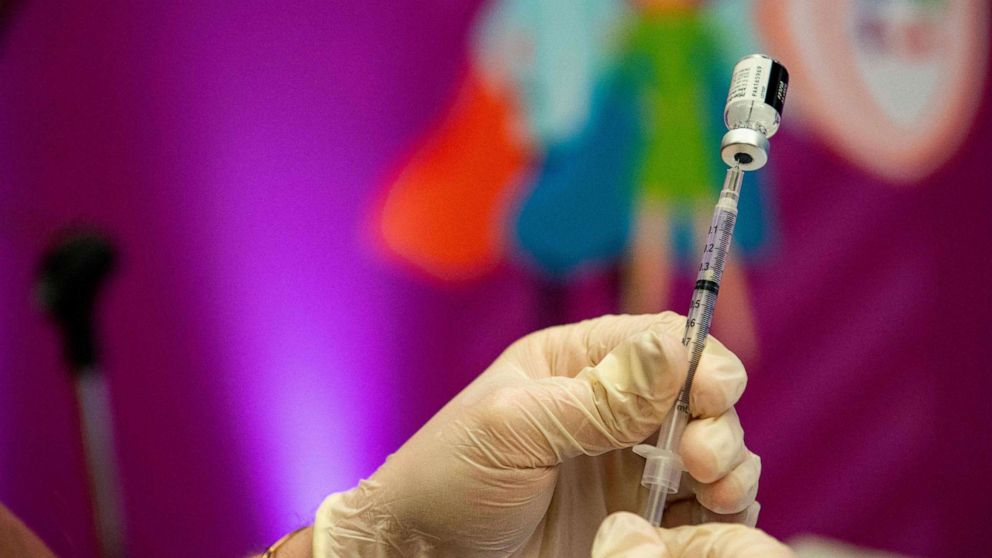Without COVID-19 vaccines, death toll would be much higher: Pfizer analysis
In the wake of the tragic milestone of 1 million official COVID-19 deaths in the United States, a new analysis found that without vaccines, the virus would have likely claimed more than 100,000 additional lives in 2021.
The analysis, sponsored by Pfizer, estimated that the Pfizer vaccine alone likely saved more than 110,000 lives in 2021, the first year of the vaccination campaign.
Though Pfizer sponsored the analysis, experts interviewed by ABC agreed it was reasonable, echoing prior estimates that the death toll would have been more than three times in 2021 in the absence of effective vaccines.
"With this model, I don’t see the numbers falling out of range and I do suspect that they are a reasonable representation of what could’ve happened in the absence of COVID-19 vaccines," Dr. Amesh Adalja, FIDSA, infectious disease specialist at the Johns Hopkins University Center for Health Security, told ABC News.
The analysis did not include an estimate of lives saved from vaccines from Moderna or Johnson & Johnson.

"In some ways, it could even be a potential undercount," John Brownstein, Ph.D., epidemiologist and chief innovation officer at Boston Children’s Hospital, and ABC contributor, said.
The analysis is significant, experts said, because it's essential for everyday Americans to understand that vaccines save lives -- especially in the face of ongoing vaccine skepticism and misinformation.
"We’ve seen in real-world analysis or modeling studies like this one that have shown the role that vaccines have played … and hopefully, this is one more additional data point to help reaffirm how these vaccines play such a pivotal role in changing the course of this pandemic," Brownstein said.
The new Pfizer vaccine analysis estimates the company's vaccine prevented 8.7 million symptomatic cases, 690,000 hospitalizations and 110,000 deaths in 2021. Included in these projections, are approximately $30.4 billion saved in health care costs.
The Pfizer vaccine is the most-utilized vaccine in the U.S., with more than 120 million Americans choosing Pfizer for their initial two-shot series, according to the Centers for Disease Control and Prevention.
When modeling the potential outcomes, researchers used data on projected infection rates, average times lost at work due to infection, vaccine efficacy, vaccination rates, and risks of being infected or hospitalized.

Although hundreds of Americans still die of COVID-19 every day, doctors on the frontlines said there is a marked difference in the pre-and post-vaccine era.
“I worked in the ICU in May 2020 and it was staggering the amount of patients -- I only had three patients that made it out alive," Dr. Katie Adib, internal medicine resident physician at The Ohio State University, told ABC News.
"Now there are nowhere near the amount of people," Adib said. "Those in the ICU who have been vaccinated tend to make it out."
The CDC recommends that everyone ages 5 and older get vaccinated against COVID-19, and those who are eligible to also seek booster shots for further protection.
“I 100% think the vaccines have saved lives," Adib said.
Rebecca Fujimura is a Family Medicine resident physician at MedStar Health/ Georgetown-Washington Hospital Center and is a contributor to the ABC News Medical Unit.




